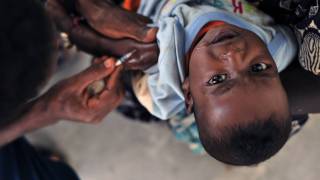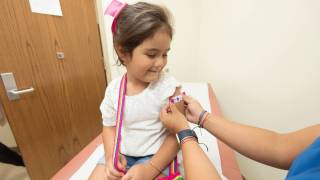Dengue Outbreak in the Philippines Exceeds 52,000 Cases During 2019

According to news reports, the number of dengue cases in the Philippines reached 52,595, with 210 related fatalities, from January to March 23, 2019.
The Philippine Department of Health (DOH) said this new data is a 76 percent increase from the same time period in 2018, reports Xinhuanet.
Additionally, the DOH reported most of those affected by dengue are children 5 to 9 years old.
Since there is no specific treatment for dengue or severe dengue, early detection and access to proper medical care lower the dengue fatality rates below 1 percent, says the World Health Organization (WHO).
Moreover, the only dengue prevention vaccine (Dengvaxia) was banned by the Philippines DOH during December 2017.
The DOH reminded the public that dengue is now a year-round disease in the Philippines, and to practice the ‘Enhanced 4-S Campaign’.
The Enhanced 4-S campaign stands for:
- Search and destroy mosquito-breeding sites,
- Secure self-protection measures like wearing long pants and long-sleeved shirts and daily use of mosquito repellent,
- Seek early consultation, and,
- Support fogging/spraying only in hotspot areas where an increase in cases is registered for two consecutive weeks to prevent an impending outbreak.
“The first step to prevent dengue is within our homes, it is important to remove any space or container that can hold unnecessary stagnant water which may become breeding sites of mosquitoes," Health Secretary Francisco T. Duque III emphasized.
Dengue is a mosquito-borne viral disease that has rapidly spread to most countries. A recent study syndicated by the WHO estimates that 3.9 billion people in 128 countries are at risk of infection with one of the dengue viruses.
There are 4 distinct, but closely related, serotypes of the virus that cause dengue (DEN-1, DEN-2, DEN-3, and DEN-4). Recovery from infection by one provides lifelong immunity against that particular serotype.
However, cross-immunity to the other serotypes after recovery is only partial and temporary. Subsequent infections by other serotypes increase the risk of developing severe dengue.
Dengue is transmitted through a bite of dengue-infected Aedes aegypti and Aedes albopictus mosquitoes. These mosquitoes can lay eggs in any space or container that holds clear and stagnant water like a bottle cap, dish dryer, plant axil, gutter, trash can, old rubber tire, etc.
These mosquitoes usually bite between 2 hours after sunrise and 2 hours before sunset and can be found inside and outside the house.
And, when the temperature increases, the dengue virus replicates faster!
This unfortunate news from the Philippines is important since the dengue virus has spread closer to the USA.
Recently, the Pan American Health Organization (PAHO) called for ‘Region of the Americas’ to prepare for possible outbreaks of the Dengue Fever virus.
In the first 6 weeks of 2019, the Region of the Americas confirmed 99,998 dengue cases and 28 related deaths, reported the PAHO on February 22, 2019.
In the USA, the Centers for Disease Control and Prevention (CDC) says the only way to prevent the transmission of the dengue virus is to fight against mosquitoes bites.
To know where there are active dengue outbreaks, the CDC has issued Travel Alerts related to dengue and continues to update its ‘maps.’
In the near future, USA residents may have access to the dengue vaccine Dengvaxia and a vaccine candidate named TAK-003.
Separately, the CDC said on March 11, 2019, there is an outbreak of measles in the Philippines. Travelers to the Philippines should make sure they are vaccinated against measles with the MMR (measles, mumps, and rubella) vaccine.
And, visitors to the Philippines should consider Routine Vaccines in addition to the MMR vaccine.
Travel vaccination and medication counseling sessions can be easily scheduled at Vax-Before-Travel.
Vaccines are similar to medications and can cause unintended side effects, which should be reported to your healthcare provider, and the CDC.
Our Trust Standards: Medical Advisory Committee

























